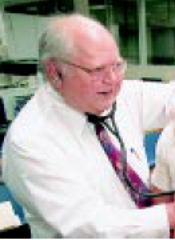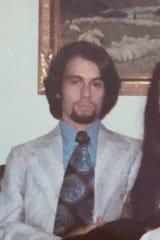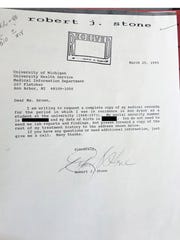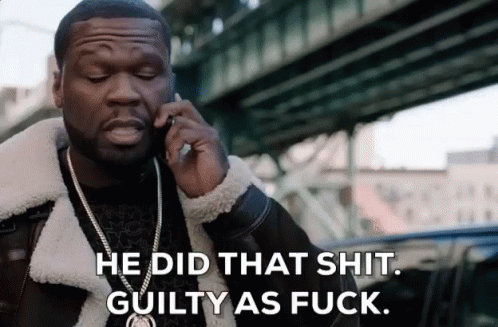The University of Michigan is investigating several "disturbing and very serious" allegations of sexual abuse against a now-deceased member of its physician team, officials confirmed to The Detroit News on Wednesday.
The doctor implicated in the reports, Robert E. Anderson, was a former director of the University Health Service and spent years as a top physician for football teams led by former coaches Bo Schembechler and Lloyd Carr.
The university said it was first alerted to allegations against Anderson in July 2018, when a former student athlete wrote to Athletic Director Warde Manuel to detail abuse during medical exams by Anderson in the early 1970s.
UM sent out a press release calling for any victims to contact the university. The response to The News came after the newspaper asked for comment from UM about Anderson's alleged misconduct, which includes sexual abuse and unneeded or unwanted exams.
He becomes at least the fourth university physician nationwide to be accused of sexual misconduct in just the last few years, and the disclosure comes while UM Provost Martin Philbert remains suspended amid sexual misconduct allegations that emerged in January.
A Palm Springs, California, UM alumnus last August sent school officials an essay he wrote, "My Michigan Me-too Moment, 1971."
 Buy Photo
Buy Photo
Robert Julian Stone looks over his medical records in his Palm Springs home, January 20, 2020. Stone alleges that the late University of Michigan Athletic Department physician Robert E. Anderson sexually assaulted him during a medical examination nearly 50 years ago. (Photo: Kim Kozlowski, The Detroit News)
In the essay, former Detroit resident Robert Julian Stone accused Anderson of sexually assaulting him nearly 50 years ago.
Stone said he learned from UM officials that the Washtenaw County Prosecutor's Office was reviewing his case, along with "many other victims" who have lodged similar claims. He also said a UM police detective told him the university became aware of allegations against Anderson years ago, then moved him from his post at UM Student Health Services to become the team physician for UM athletes.
Responding to inquiries from The News about the allegations, UM officials announced Wednesday they were investigating Anderson and had received reports of "sexual misconduct and unnecessary medical exams" from former patients, most of them from the 1970s but at least one from as late as the 1990s. The university said its police department began investigating allegations in July 2018 and hired an outside law firm to conduct an independent inquiry.
"The allegations that were reported are disturbing and very serious," UM President Mark Schlissel said in a statement. "We promptly began a police investigation and cooperated fully with the prosecutor's office."

Robert E. Anderson, from a retirement announcement. (Photo: University of Michigan)
The university said it would open a hotline for former patients to report abuse allegations against Anderson: (866) 990-0111.
Asked Wednesday why the university did not publicly ask victims to come forward until after being contacted by The News, UM spokesman Rick Fitzgerald said, "The university took this action based on receipt of an initial review by the external law firm and the prosecutor's decision Tuesday" not to file criminal charges.
Washtenaw County Prosecutor Steven Hiller said Wednesday that his office finished its review of the case last fall and concluded that because Anderson had died and so much time had passed since the alleged incidents, that no charges could be filed.
Fitzgerald said the UM police investigation identified four additional former patients with similar allegations against Anderson.
“It is our understanding from the police investigation that there were rumors and some indication that UM staff members were aware of Dr. Anderson’s inappropriate medical exams,” he said.
Stone, who earned bachelor’s and master’s degrees from UM during the 1970s, composed an account last summer of the assault that he says occurred when he went for a medical exam in June 1971 with Anderson, who was then head of the UM Student Health Service.
After Stone sent his written account to two top UM officials, he spoke with university police and filed a report alleging that Anderson dropped his pants during a medical exam, grabbed Stone’s hand and used it to fondle the doctor’s genitals.
Anderson died in 2008.
Outside the university, a woman filed a lawsuit in 1995 against Anderson, saying she felt violated by the doctor during a medical exam she needed for employment. But the case was dismissed.
In emails that Stone shared with The News, UM officials apologized, and another asked if any UM employee had known about his allegations and failed to act.Then, a UM police detective called him to get more information.
While at UM, Anderson was known as “Dr. A” and served as the UM Athletic Department team physician. His career, which began in 1968, included working with the football team during 25 bowl games and under four coaches, including the late Schembechler and Carr. He retired from UM in 2003.
'Me too includes men'
Stone, who is gay, retired and living with his husband in Palm Springs, said the alleged experience affected him deeply. It turned him off to medicine for a long time, and also made him realize sexual abuse can happen to anyone.
"It gave me a firsthand knowledge that these things happen to men, and that wasn't a knowledge I particularly wanted to have," Stone, 69, said in an interview with The News at his home. "'Me too' includes men, too."
He said he is coming forward for many reasons, including a notion that he said was dispelled after he reported Anderson to UM andlearned more allegations had been made about the doctor.
“When I first wrote to the university, I thought, ‘Well, Dr. Anderson was a closeted gay man,’ and I had some compassion for a man at that time in that position,” Stone said. “Now I realize he wasn't a closeted gay man. He was a sexual predator, and that's … a criminal thing.”
Washtenaw County Chief Assistant Prosecutor Steven Hiller confirmed that the office received a report of an investigation conducted by the UM police department containing "allegations of criminal wrongdoing" by Anderson.
Hiller said that a formal request for criminal prosecution did not accompany the report. Even so, the supervisor of the prosecutor's office’s charging function reviewed the report to determine if the possibility of criminal prosecution existed.
"Because Dr. Anderson is deceased, no criminal prosecution of him would be possible regardless of whether the facts set for the report supported such an action," Hiller said in an email. "Furthermore, the ability to prosecute any ancillary offenses that may have been committed by others would have been extinguished by the statute of limitations decades ago. Therefore, this office’s review of the report has concluded."
Hiller referred questions about how many victims were in the report to UM police.
Anderson’s wife, now 91 and living in Alaska, could not be reached for comment. But two of his three children, Jill Anderson and Kurt Anderson, said their father could never have done such a thing.
"That’s ridiculous," said Jill Anderson. "My dad was a beloved doctor at the UM for so many years. He was very well-respected. Everyone said he treated them with the utmost integrity and care."
She spoke about her father for more than 30 minutes, alternating between shock and anger about the allegations, and pride in her father's legacy.
She said her father was at the forefront of medicine for athletes, and wrote protocols for how young men should be screened before they came into athletic programs. She also said he cared for thousands of athletes, had a private practice, helped young couples get pregnant and also started a venereal disease clinic at the UM health service.
Jill Anderson said she recognized that her father worked in the same field in which others have spoken out about sexual misconduct, including victims of Larry Nassar, the former Michigan State University sports doctor who is in prison for sexually assaulting hundreds of women under the guise of medicine.
" I have great appreciation for people speaking up and saying that something is wrong," said Jill Anderson. "That is not something I would have ever have believed of my father."
Kurt Anderson, the doctor's youngest son, was stunned by the accusations.
"That is just not him," he said. "When he passed away, it was patient after patient who came and said they loved him. No one has ever said anything like that."
The #MeToo era
The allegation comes during an era when people across society are bringing complaints about sexual assaults from the past for closure, accountability and justice.
For the past three years, MSU has faced fierce criticism over its handling of allegations against Nassar, regarded as one of the worst sexual offenders in history.
Former MSU president Lou Anna Simon faces a yet-to-be scheduled trial this year for her alleged role in the scandal.
On Friday, a jury convicted former MSU head gymnastics coach Kathie Klages of lying to investigators about her knowledge of sex abuse allegations against Nassar.
Other universities have faced scandals involving high-profile sexual predators in their ranks, including Pennsylvania State University, the University of Southern California and Ohio State University, which faces lawsuits from about 350 men alleging the school failed to stop sports doctor Richard Strauss from abusing them between 1979 and 1997.
At UM, the school's second-highest official, Provost Martin Philbert, was suspended last month after several sexual misconduct allegations were lodged against him.
Stone said he was assaulted during his junior year when he was 20 and coming out as a gay man.
Stone, who graduated as salutatorian from Detroit’s Denby High School in 1968, said the incident with Anderson happened on June 30, 1971.
The doctor implicated in the reports, Robert E. Anderson, was a former director of the University Health Service and spent years as a top physician for football teams led by former coaches Bo Schembechler and Lloyd Carr.
The university said it was first alerted to allegations against Anderson in July 2018, when a former student athlete wrote to Athletic Director Warde Manuel to detail abuse during medical exams by Anderson in the early 1970s.
UM sent out a press release calling for any victims to contact the university. The response to The News came after the newspaper asked for comment from UM about Anderson's alleged misconduct, which includes sexual abuse and unneeded or unwanted exams.
He becomes at least the fourth university physician nationwide to be accused of sexual misconduct in just the last few years, and the disclosure comes while UM Provost Martin Philbert remains suspended amid sexual misconduct allegations that emerged in January.
A Palm Springs, California, UM alumnus last August sent school officials an essay he wrote, "My Michigan Me-too Moment, 1971."

Robert Julian Stone looks over his medical records in his Palm Springs home, January 20, 2020. Stone alleges that the late University of Michigan Athletic Department physician Robert E. Anderson sexually assaulted him during a medical examination nearly 50 years ago. (Photo: Kim Kozlowski, The Detroit News)
In the essay, former Detroit resident Robert Julian Stone accused Anderson of sexually assaulting him nearly 50 years ago.
Stone said he learned from UM officials that the Washtenaw County Prosecutor's Office was reviewing his case, along with "many other victims" who have lodged similar claims. He also said a UM police detective told him the university became aware of allegations against Anderson years ago, then moved him from his post at UM Student Health Services to become the team physician for UM athletes.
Responding to inquiries from The News about the allegations, UM officials announced Wednesday they were investigating Anderson and had received reports of "sexual misconduct and unnecessary medical exams" from former patients, most of them from the 1970s but at least one from as late as the 1990s. The university said its police department began investigating allegations in July 2018 and hired an outside law firm to conduct an independent inquiry.
"The allegations that were reported are disturbing and very serious," UM President Mark Schlissel said in a statement. "We promptly began a police investigation and cooperated fully with the prosecutor's office."

Robert E. Anderson, from a retirement announcement. (Photo: University of Michigan)
The university said it would open a hotline for former patients to report abuse allegations against Anderson: (866) 990-0111.
Asked Wednesday why the university did not publicly ask victims to come forward until after being contacted by The News, UM spokesman Rick Fitzgerald said, "The university took this action based on receipt of an initial review by the external law firm and the prosecutor's decision Tuesday" not to file criminal charges.
Washtenaw County Prosecutor Steven Hiller said Wednesday that his office finished its review of the case last fall and concluded that because Anderson had died and so much time had passed since the alleged incidents, that no charges could be filed.
Fitzgerald said the UM police investigation identified four additional former patients with similar allegations against Anderson.
“It is our understanding from the police investigation that there were rumors and some indication that UM staff members were aware of Dr. Anderson’s inappropriate medical exams,” he said.
Stone, who earned bachelor’s and master’s degrees from UM during the 1970s, composed an account last summer of the assault that he says occurred when he went for a medical exam in June 1971 with Anderson, who was then head of the UM Student Health Service.
After Stone sent his written account to two top UM officials, he spoke with university police and filed a report alleging that Anderson dropped his pants during a medical exam, grabbed Stone’s hand and used it to fondle the doctor’s genitals.
Anderson died in 2008.
Outside the university, a woman filed a lawsuit in 1995 against Anderson, saying she felt violated by the doctor during a medical exam she needed for employment. But the case was dismissed.
In emails that Stone shared with The News, UM officials apologized, and another asked if any UM employee had known about his allegations and failed to act.Then, a UM police detective called him to get more information.
While at UM, Anderson was known as “Dr. A” and served as the UM Athletic Department team physician. His career, which began in 1968, included working with the football team during 25 bowl games and under four coaches, including the late Schembechler and Carr. He retired from UM in 2003.
'Me too includes men'
Stone, who is gay, retired and living with his husband in Palm Springs, said the alleged experience affected him deeply. It turned him off to medicine for a long time, and also made him realize sexual abuse can happen to anyone.
"It gave me a firsthand knowledge that these things happen to men, and that wasn't a knowledge I particularly wanted to have," Stone, 69, said in an interview with The News at his home. "'Me too' includes men, too."
He said he is coming forward for many reasons, including a notion that he said was dispelled after he reported Anderson to UM andlearned more allegations had been made about the doctor.
“When I first wrote to the university, I thought, ‘Well, Dr. Anderson was a closeted gay man,’ and I had some compassion for a man at that time in that position,” Stone said. “Now I realize he wasn't a closeted gay man. He was a sexual predator, and that's … a criminal thing.”
Washtenaw County Chief Assistant Prosecutor Steven Hiller confirmed that the office received a report of an investigation conducted by the UM police department containing "allegations of criminal wrongdoing" by Anderson.
Hiller said that a formal request for criminal prosecution did not accompany the report. Even so, the supervisor of the prosecutor's office’s charging function reviewed the report to determine if the possibility of criminal prosecution existed.
"Because Dr. Anderson is deceased, no criminal prosecution of him would be possible regardless of whether the facts set for the report supported such an action," Hiller said in an email. "Furthermore, the ability to prosecute any ancillary offenses that may have been committed by others would have been extinguished by the statute of limitations decades ago. Therefore, this office’s review of the report has concluded."
Hiller referred questions about how many victims were in the report to UM police.
Anderson’s wife, now 91 and living in Alaska, could not be reached for comment. But two of his three children, Jill Anderson and Kurt Anderson, said their father could never have done such a thing.
"That’s ridiculous," said Jill Anderson. "My dad was a beloved doctor at the UM for so many years. He was very well-respected. Everyone said he treated them with the utmost integrity and care."
She spoke about her father for more than 30 minutes, alternating between shock and anger about the allegations, and pride in her father's legacy.
She said her father was at the forefront of medicine for athletes, and wrote protocols for how young men should be screened before they came into athletic programs. She also said he cared for thousands of athletes, had a private practice, helped young couples get pregnant and also started a venereal disease clinic at the UM health service.
Jill Anderson said she recognized that her father worked in the same field in which others have spoken out about sexual misconduct, including victims of Larry Nassar, the former Michigan State University sports doctor who is in prison for sexually assaulting hundreds of women under the guise of medicine.
" I have great appreciation for people speaking up and saying that something is wrong," said Jill Anderson. "That is not something I would have ever have believed of my father."
Kurt Anderson, the doctor's youngest son, was stunned by the accusations.
"That is just not him," he said. "When he passed away, it was patient after patient who came and said they loved him. No one has ever said anything like that."
The #MeToo era
The allegation comes during an era when people across society are bringing complaints about sexual assaults from the past for closure, accountability and justice.
For the past three years, MSU has faced fierce criticism over its handling of allegations against Nassar, regarded as one of the worst sexual offenders in history.
Former MSU president Lou Anna Simon faces a yet-to-be scheduled trial this year for her alleged role in the scandal.
On Friday, a jury convicted former MSU head gymnastics coach Kathie Klages of lying to investigators about her knowledge of sex abuse allegations against Nassar.
Other universities have faced scandals involving high-profile sexual predators in their ranks, including Pennsylvania State University, the University of Southern California and Ohio State University, which faces lawsuits from about 350 men alleging the school failed to stop sports doctor Richard Strauss from abusing them between 1979 and 1997.
At UM, the school's second-highest official, Provost Martin Philbert, was suspended last month after several sexual misconduct allegations were lodged against him.
Stone said he was assaulted during his junior year when he was 20 and coming out as a gay man.
Stone, who graduated as salutatorian from Detroit’s Denby High School in 1968, said the incident with Anderson happened on June 30, 1971.





